4
winter – hibernus
The seven deadly sins
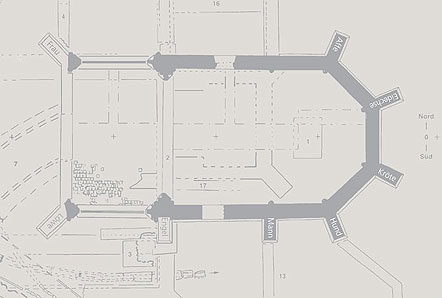
The most important part of the furnishings of the Wintringer Chapel is a presumably completely preserved cycle of eight figural stone sculptures, which sit on the console-roof-like recesses of the buttresses - the so-called water hammers. These figures were sculptured out of the water hammers that form a block and are therefore called water hammer figures. The cycle begins at the choir pillar of the south side with an angel holding a banner. It is followed to the east around the apse by a man lying on his back, then presumably a dog, a toad, a lizard and a monkey, and on the aforementioned subsequently added pillars on the west side, a seated woman and a lion. An obvious interpretation of the cycle could be the symbolic representation of the seven deadly sins or vices, to which the angel refers warningly.
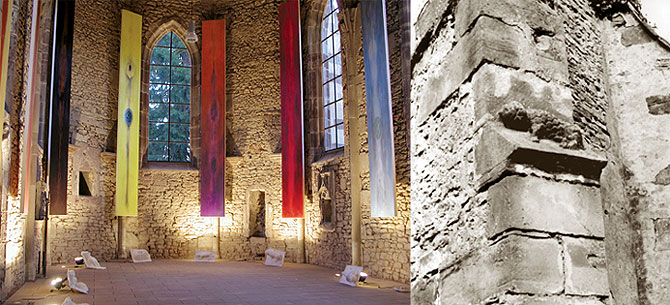
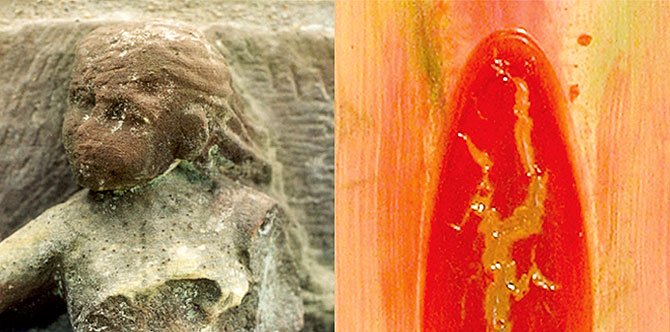
On closer inspection, the cycle of eight water hammer figures for the former priory church in Wintringen in the 15th century was quite deliberately placed in the outer area of the church. The viewer should probably perceive the cycle of figures before entering the church, their position tormented by the drained rainwater, on the water hammers of the buttresses. The sculptor of the Middle Ages provoked therefore already by the position of his representations of the vices bwz. deadly sins a reaction. The conceptual starting point of the first winter event was to react to the artistic statement of the sculptor of the water hammer figures.
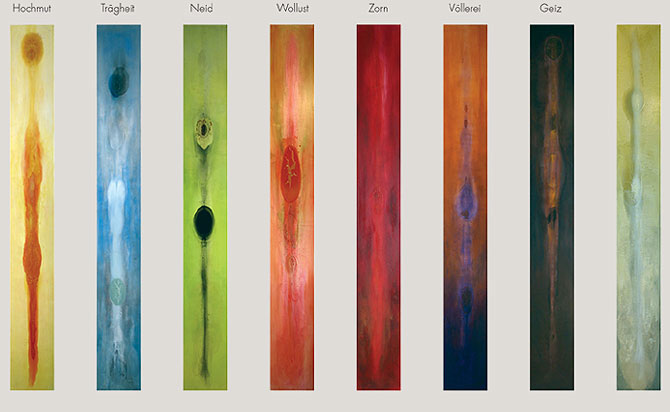

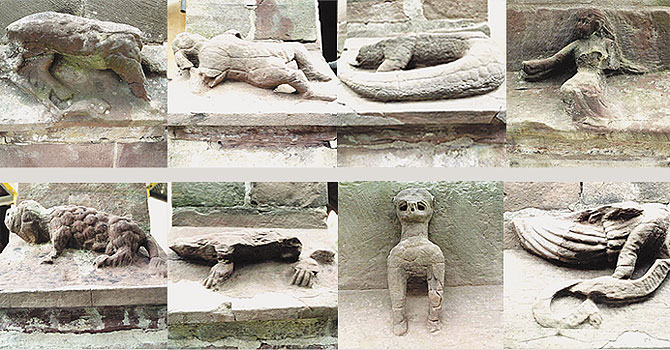
The late Gothic water hammer figures of the Wintringer Chapel in the mirror of eight panel paintings by the painter Nikola Dimitrov
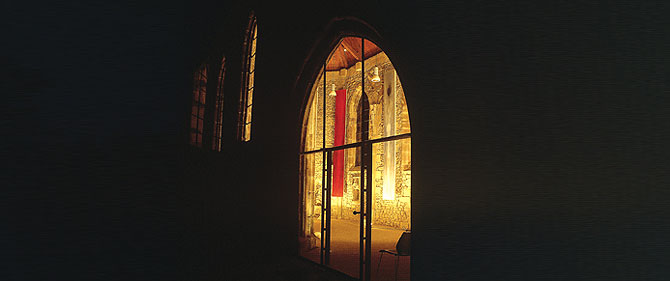
Already at the beginning of 2005, the painter Nikola Dimitrov got involved in this process of dealing with an art form that was fulfilled in the context of a religious worldview. He thus dared to approach the superficially incomprehensible, in order to make an offer in his artistic way for a present-related level of understanding in the dialogue of the water hammer figures with their viewer.
In the context of a specially conceived exhibition, the allegorical figures of the water hammer figures inspired him to a painterly examination of the theme of the deadly sins. In his interpretation, he links the seven cardinal vices, which distance man from the path to himself as well as from God, with the symbolism of the planets, which is also familiar to the medieval world of ideas. Since ancient times, the planets have represented inner and outer forces that place the development of man under a tension of light and shadow. In the polarity between good and evil, between heaven and earth, rise and fall, the deadly sins arrange themselves as extremes of psychic and physical possibilities. The angel also becomes an ambiguous figure as a bearer of light and servant of darkness.
In the eight pillar-like panel paintings, taking up the emerging forms of the Gothic period, Dimitrov unfolded in his typical pictorial language a symbolic universe of human individuality in response to his dialogue with this cycle. He thus created a contemporary mirror of self-knowledge, in the tradition of the "memento mori".
Stefanie Risch
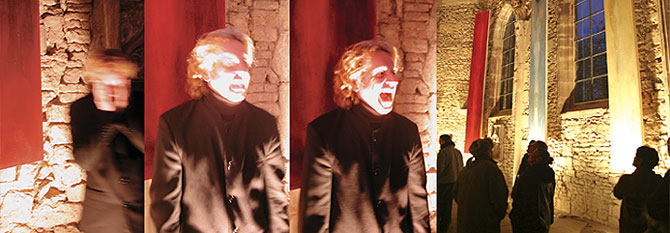
The actor and countertenor Ralf Peter impressively interpreted the seven deadly sins through text and song improvisations during the exhibition opening in front of the respective panel paintings.
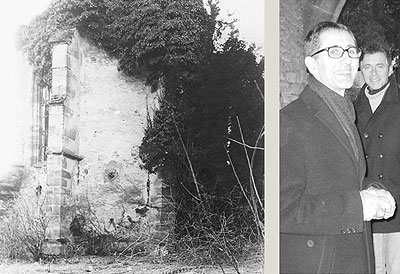
Mosaic of sins
Beautifully complementing the monumental panel paintings of the "Seven Deadly Sins", Nikola Dimitrov has worked 100 originals in small "Gothic" format. They were created on the canvas, which Dimitrov painted in advance with colors assigned to the symbolism of the lion and the sun in the artistic examination of the theme and the oversized format of the panel paintings. This original image was divided into strips, which were painted over individually. The result is 100 small, each independent creations, which take up the colors that Nikola Dimitrov has assigned to the cardinal deadly sins. The proceeds will be donated to the project cultural site Wintringer Chapel.
The Small Sins, 100 originals, signed by hand, acrylic on canvas, approx. 35 x 4.5 cm on handmade paper, DIN A 3. Price 25,- € each. Purchase via peter.lupp@rvsbr.de
